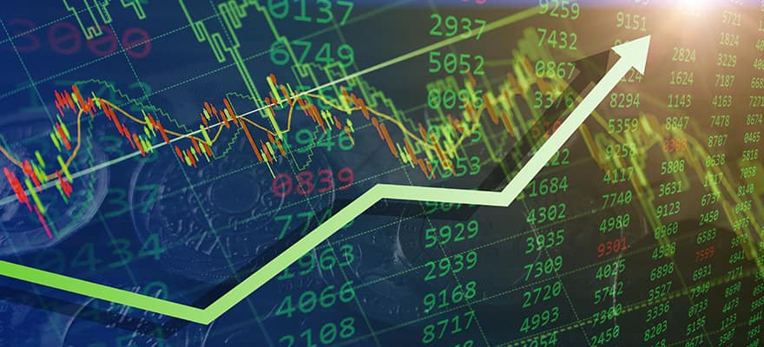A look at the basics of trading

Many people must have heard at least once in their lifetime the terms "forex", "trading" or even "CFD trading", but very few know exactly what it means or how it's done. In any case, there is a lot to discover and learn as you explore this world in depth. Why are we telling you this?
If you're a beginner and want to get involved in the industry, simply scroll down as we answer some of the most FAQs related to the forex market and the trading industry in general, including some basic terms, risks of start trading and more.
Let's dive in then.
1. What is forex trading?
Trading forex, allows you to trade two currencies against each other.
For example, if you are trading EUR/USD and think that the EURO is stronger
against the USD and end up correct, then you're most likely ending up making a
profit. Alternatively, you could still lose money if your prediction is wrong,
in a scenario where you have predicted the EURO to be stronger than the USD and
it turns out otherwise.
2. What are "Bid" and
"Ask" prices?
A "bid" price is the highest price that a trader is willing to pay a
stock, whereas the "ask" price is the price a trader will accept for the stock.
People who want to buy a stock are called "bidders" and the people who want to sell are called
"askers".
3. What is a
"spread"?
A spread is a difference between the "ask" and the "bid" price of a
currency pair which is charged when traders place a trade. For this reason, it
is wise to choose to trade with a broker offering small spreads - also called
"tight" spreads.
4. What is "leverage"?
Leverage works by enabling a trader to borrow money in order to increase
the potential return of investment.
Example: If you open a trading account with $100 and the broker gives
you leverage of 1:30, this means that you can trade with volumes worth of $3,000.
Still, having a leverage of 1:30 in a scenario
you've lost, your loss will essentially be magnified by 30 times.
5. What makes the market price
fluctuate?
It's highly impossible to predict the market! However, economic and
geopolitical factors are likely to drive market prices. These include
activities of politics, wars, pandemics etc. Having this in mind, it is
recommended to always check the Economic calendars in your broker's platform,
to have a look at important economic events that might affect the market and
further your trades.
6. Is trading risky?
Trading and especially CFD trading is considered as very risk since CFDs
are complex instruments and come with a high risk of losing money rapidly due
to leverage.
The trading market (i.e: currency, stock, commodity market) can experience a
lot of price fluctuations, therefore, investors interested in trading are
advised to be very careful or even consult a financial advisor before taking
any decisions.
7. How much money will I make from trading?
There're a lot of traders, especially
the new ones who start trading just because they think they'll make a million-dollar
empire. The trading industry is not a guaranteed way to make money online. In
theory, there are some potential trading opportunities, but you need to
remember you can also lose money from trading. That being said, there's no
defined answer to this question.
8. Is trading legal?
Yes, trading is legal in most countries. However, some countries have
restrictions while others have banned trading.
9. What style of trading suits me the best?
Again this is a question that cannot
be answered precisely as this depends on your personality and schedule. What we
mean is, when you start trading you need to find what works for you while
considering some important factors, such as:
a) Your availability: If you're a full-time employee you may want to look for
longer term trades.
b) Your account size: If you have a small or limited "budget" you
may want to focus on small cap stocks.
c) Your strengths: If you're better with numbers, you may want to focus on
technical trade, whereas if you're better with research, you may want to seek
for a style that involves fundamental analysis.
Your trading style can't be determined after you execute your first trade! As
you go along and learn more about the industry you'll get to discover your
strengths and weaknesses, and once you're ready and confident enough you'll
then decide what strategy works for you. And don't forget, trading involves
risks, and loss of money, the importance here is being patient and not letting
your emotion takeover your judgement.
10. Where can I learn more about
trading?
If you want to take your trading knowledge further, there are a lot of
resources on the internet you can find that provide you with the best
educational materials! In addition, many brokers have a specific section with
trading education, glossary, and a FAQs section that could be useful at any
time.
So, now that we went through these 10 most
frequently asked questions on trading, it is important to understand that the
role of trading psychology plays a significant role in transforming to a
disciplined trader. Instead of starting right through with trading, it is
better to get your mind straight, start from zero and make some practice by
signing up on a free demo account. This, along with the free educational
material provided on your broker's platform should be helpful before you step
into the real world!
Need help or more info?
Visit ForexTB's Help Centre and a member of our professional
multilingual team will help and guide you along your way, covering any
questions you may have; from creating your account and registration process, to
any trouble you may experience throughout your trading journey.




